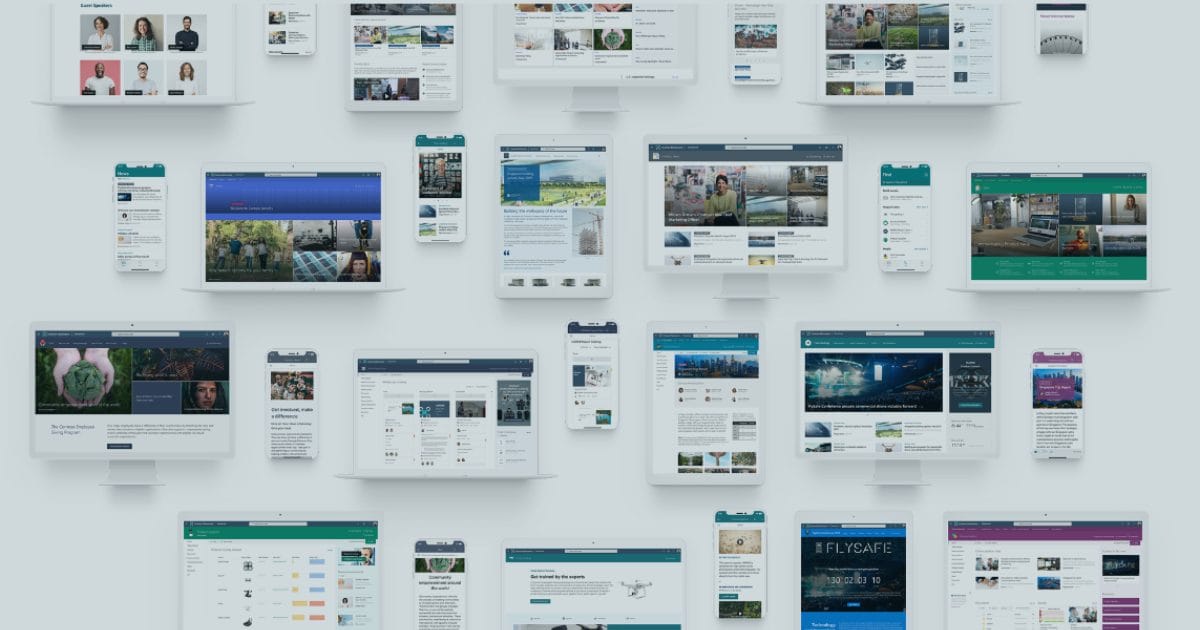Women make up 47 percent of all employed adults in the U.S., but as of 2015, they hold only 25 percent of computing roles, according to data from the National Center for Women & Information Technology (NCWIT). How can we encourage more women to pursue careers in technology? We spoke with Samantha Waters of Nintex, to get her perspective on the value of a career in tech.
Tell me a little bit about your current role and how you got to be there?
I’m an Account Manager at Nintex, in Bellevue, Washington. I actually found Nintex because my first career out of college was in tech recruiting and Nintex was one of the customers I supported. After I had been at the recruiting firm for about three years, I really wanted to focus on something that was more product-based. I heard about an opening at Nintex through one of my contacts and landed in the Account Manager role.
Did you always have an interest in a role in technology?
It more was more serendipitous that I found technology. I originally went to law school and I worked for a law firm in Bellevue for a couple of years. At the same time, I was also working at a bar in Bellevue and a lot of the clientele worked at different tech companies. So I’d interact with guests that were traveling for these big Microsoft conferences. We also have Expedia, we have Amazon just down the street. Through my bar conversations with customers, I realized that because I live in Seattle – it would be a really good place for me to get into the tech industry. I started with recruiting, to understand the rules, to understand the services, and then eventually landed more into the product space.
But it’s definitely not something that I thought about before interacting with a lot of technical folks. Especially because I grew up in a small town outside of Portland. I don’t even know if I knew what coding was or really understood the technical space at all growing up. The first time I really got to experience it was moving to Seattle and seeing it all the new companies pop up around the city.
What does a typical day look like for you?
I’m having a lot of different conversations with a lot of different customers. I’m making sure they’re fully supported from a product standpoint, making sure they have everything they need. Every day is different, which I really like – every customer is so different and has different use cases. But my goal each day is to really understand how our customers are using Nintex, how I can make their experience better, and then to identify other pieces of our products which they could leverage for their business.
It’s a lot of calls, a lot of interacting with our internal teams – like working our Renewals Team to make sure customers are happy with their current contracts and working with our Customer Success Team to make sure that our customers have good adoption. And there’s a lot of work with our Partner Team because we work with partners like Elantis to make sure that our customers are fully supported.
Is there an accomplishment in your career you’re most proud of or something that has been a highlight that you’d like to share?
I’ve taken a few side projects recently. One of the things that I’ve been focusing on has been making sure that I’m pulling relevant information for my customers. That’s been gathering use cases and then also working with customers that have low adoption to get them to grow. It’s a small thing, but it’s something that makes me really happy because, being in sales, there’s this misconception that I am just super excited to sell these customers everything. But I really do like it when customers get value out of the tool.
I work with a lot of Canadian government customers and they have a lot of interesting use cases. So I’ve been working on a project to gather all these use cases to share with other teams and other agencies here in the U.S. That’s been really rewarding.
From the adoption side, I’ve been a part of a team that’s helping make our telemetry easier to digest and understand. So we can really have a good grasp of how our customers are utilizing the tool. Not only from a specific use case standpoint, but from an overall platform adoption. So that’s been really, really fun and I’ve been doing that over the past year and I’m pretty proud of that piece.
As you know, March 8th is International Women’s Day, so let’s talk about some of the gender roles and how that plays into careers in technology. Do you think that women in technology careers face different challenges than men do?
First off, there’s definitely less women in technology than men. For example, in my last role, part of my job was going on site to meet managers face to face [at Microsoft]. I’d always kind of laugh because when I would go to the woman’s restroom – even in the afternoon – all the lights would be off. Honestly, there had not been one single soul in that restroom until I got there. I always thought that was really, really odd. I was like, “where are all the women?”
In my Account Management role in particular, I think any female rep needs to work a little harder to build technical credibility. I think I have to work a little bit harder to make sure that customers can trust me. I have to make sure all my demos are really clean, make sure my answers sound a particular way.
It was the same when I was recruiting for technical roles too. I was reaching out to people who had been in the tech space for 25 years or more. And then here I come – I’m a brand new college graduate, trying to qualify them for a senior development role. It was challenging on a lot of different fronts. I think women definitely do face that credibility challenge.
There’s obviously a pay gap challenge that we run into as well, because there’s just a lot less of us.
What do you think that organizations could do to help encourage more women to join in these kinds of technology roles?
That’s a good question. I look for companies that really celebrate diversity-related milestones or share goals or commitments that drive diversity and inclusion. I always keep an eye out for those awards, whether it’s through Glass Door or local magazines that talk about a company’s focus to include more women or include more diverse candidates.
I also think that having unbiased job descriptions is important to make sure that women feel encouraged to apply.
Ultimately on a more systemic level, I think encouraging more females in college and girls in school to code, to get involved in tech, to learn more about tech. Like I said, growing up I don’t even think I took a typing class. We had no computer science. I didn’t even know what coding was. I didn’t even think about it, just because it wasn’t presented or encouraged. I think just encouraging women to check it out and to investigate a career in technology. Especially because we have a lot to offer.
What advice would you give to younger women or girls who are curious about a role in tech or wondering if it might be the right fit for them?
Honestly just explore it. Exploring coding, exploring technology fields is just worth it. Sometimes I think we don’t give careers in technology a second glance. Had I known what kind of careers I could get in tech, I probably would have pushed myself to take more computer science classes of courses or to learn how to code.
Attending tech meetups is a good way to explore it too. There are a lot of events that are hosted by local tech companies, and there’s women-specific tech groups. I would just encourage anyone who wants to learn more about a career in technology to attend those and to meet people and to be inspired by the folks that are in them. That’s what gets me excited about our role is meeting someone or learning about someone’s career path. That inspired me to into tech.
Do you have any examples of someone who’s inspired you in your career?
Yes, one of my customers. She was at senior program manager at Microsoft and at the time she was supporting Microsoft’s Universal Store, which was their e-commerce hub for all Microsoft purchases. She was a huge inspiration for me throughout my career. She was very involved in Microsoft’s mission to hire more women. And I always looked to her for inspiration because she always had to be someone who was speaking out and she was probably the only woman – let alone a woman of color – in a lot of her meetings. She was a huge source of inspiration to me – not only to be a woman in tech, but to be a leader in tech, and to raise my voice and when I wanted to.
Do you have any other resources that have helped you in your in your career?
One of the things that Nintex has done recently is partnered with the WIT Network. It’s perfect for what we’re talking about today. It includes women that work in all different roles across all different kinds of technologies. They get together to talk about things that they encounter: what steps you can take based on different kinds of situations we’re in, like negotiating, managing home life, and overcoming sexism in the workplace. It’s a really awesome group to be a part of. Nintex has partnered with them for a lot of different events, so I’ve been able to attend some of their webinars and listen to some of their speakers.
One of the books that I read a couple of years ago was Sheryl Sandberg’s Lean In, which also really interesting because women have a lot of different roles to cover at work and at home. That was a good source of inspiration for me too.
Would you like to share some thoughts on how you’ve balanced your personal life with work?
This is something that I’ve definitely been thinking about more. It’s hard because I eventually want to start a family. But being someone who’s pretty career-driven, it’s difficult to think about the right time, because both my husband and I have big aspirations for our careers. For now, I’m fortunate that I don’t have to balance too many things. I’m always so impressed by people who manage all of it because it’s a lot.
Can you tell me what you wake up in the morning looking forward to?
I’m fortunate that my job is so different every day. I never really know what to expect, which is fun and exciting. But for me right now, I just really love my team, I really love the people I work with. They make it easy. Our customers are great too. It’s just lots of good, interesting conversations and there’s never really a dull day.
I’m always learning something every single day, whether it’s like about our products specifically or about customer or about my colleagues. It’s a fun place to be.
Anything else that you’d like to share that we didn’t touch on yet?
Honestly, it’s just really great that you’re doing this and capturing a wide variety of perspectives. I’m eager to see what other women have to say, because it’s something that is always is top of mind for me. I’m always seeking new sources of inspiration.
Want to read about more talented women in tech? Check out our posts featuring Elantis’ Business Process Automation Team Lead, Christine Mikhaiel, Elantis Director of Business Process Automation, Rhia Wieclawek and Elantis’ Director of Marketing, Amy Grendus.
The Author
 Amy Grendus, Director of Marketing and Business Development
Amy Grendus, Director of Marketing and Business Development
Amy is a results-focused marketing professional with over eight years’ experience working closely with sales teams to provide effective solutions to customers.

























